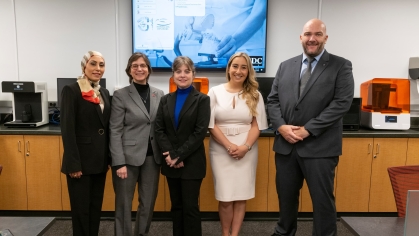‘A Generational Conga Line’
Rutgers–Newark alumnus John Felicetti views his endowed scholarship for the Honors Living-Learning Community in Newark as a way to support future generations.
When he was a student in the 1970s, John Felicetti could not afford the tolls to drive to Rutgers–Newark.
“It took me over an hour to get to school every day since I could not take the parkway or the turnpike because there were tolls,” he says.
Support Students
Your generosity provides support to these students and others like them.
His father died after a protracted illness when he was a freshman in high school, leaving him and his six siblings struggling financially. After graduating from Cresskill High School in Bergen County, New Jersey, Felicetti worked the overnight shift at a grocery store to purchase a car and pay his $242-per-semester tuition at Rutgers–Newark.
When he graduated in 1979, he started donating to Rutgers in multiples of $242. “Not a week goes by that I don’t think of Rutgers,” he says. “If it wasn’t for Rutgers–Newark, I am not sure what I would have done.
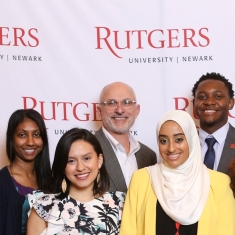
“Giving back is also necessary because it helps to make connections across generations and becomes a tie that binds us together,” he says. “It becomes a generational conga line—each of us with hands on the shoulders of those before us. I hope all students and former students are affected by the help they received as students and then in turn can help others.”
Felicetti hopes to make getting an education easier for Rutgers students. His latest endeavor, which he started in 2017, is the John S. Felicetti Scholarship for the Honors Living-Learning Community (HLLC) at Rutgers–Newark, which offers students in the honors program up to a five-year renewable scholarship for tuition assistance or on-campus living expenses.
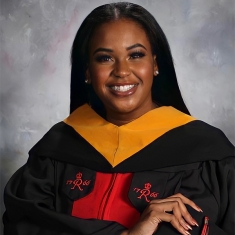
Created in 2015, the Honors Living-Learning Community, located in the New Street building, can house 390 students and is an intergenerational learning and residential community that enrolls scholars and future leaders ranging in age from 18 to 60. They encompass a diverse range of experiences, including those of first-generation college students, transfer students, and parents. Half are from the city of Newark. It has been recognized nationally for reimagining honors programs and had a major impact on the lives of many students, including Ahjoni Wilson, a 2021 Rutgers Business School–Newark graduate, who says the scholarship “meant everything to me” and that the program gave her the support she needed in school.
“Being born and raised in Newark all my life and getting the full college experience right up the hill, a product of my own city, is a super prideful moment for me,” she says.
After high school, Wilson had to withdraw from Rutgers to deal with a serious illness during a gap year, she says. During this time, she learned about the honors program and how students there supported one another. “I found this community and they helped propel me through,” she says.
Wilson, who currently lives in Florida and works in alternative medicine, said some of her accounting classes were challenging, but in the honors program, she was able to get the assistance she needed. “I am grateful for all the support that I have been given and that Mr. Felicetti believed in all of us,” Wilson says, adding she believes that without the scholarship, she probably would have attended Rutgers, but is not sure if she would have graduated.
She says she met other students who benefitted from the scholarship. “Mr. Felicetti and the HLLC really changed lives,” Wilson says.
Esron Holder of East Orange, a current Felicetti scholarship recipient, said he would not have been able to afford to live at HLLC and get the full Rutgers experience without the scholarship. “The Felicetti Scholarship helped me live on campus, which really enhanced my college experience,” Holder says. “It helped me make friends, network, and connect with others, and attend a variety of campus events, exposing me to new things that I would have never experienced otherwise. My college career would not have been the same."
Giving Back to Rutgers
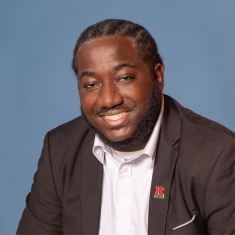
Giving back has always been important to Felicetti as it is his way of demonstrating his gratitude. “I have respect and appreciation for this institution which compels me to want to give back.”
Felicetti says that he lived in a middle-class community, but his family struggled. “The side note is sometimes you read accounts of people who say, ‘Well, we grew up poor, but we didn't know it,’” he says. “I was reminded of that every day.”
At Rutgers, he majored in political science and history and minored in education with aspirations of becoming a teacher. This plan changed, however, when he accepted a position as a computer programmer at MetLife and moved to South Carolina. “At that time, there were no computer science degrees,” he says. “You went to a large bank or insurance company, and they had in-house training programs.”
Felicetti spent more than 45 years in information technology working in numerous roles including in software development, senior technology executive and management consulting.
‘Rutgers is me’
“There is no obstacle too hard if you just put your head down and do the work, and this is not lofty stuff,” Felicetti says. “And at some point, the personality of the university and my personality, they converged: I took that experience, reinforced the positive aspects of who I am as a person. Rutgers is me.”
Rutgers had a major impact on Felicetti’s life, he says. “Everyone has a secret weapon, what gets you up in the morning and motivates you,” adding the Rutgers experience “kind of softened me a little bit. Rutgers validated in me a respect for hard work.”
Felicetti’s connection with Rutgers strengthened when a development director contacted him. “I started getting a little more involved,” he says. “I went down to campus after 20 years, which they made nicer, and walked around. I saw the students trudging to class with their backpacks and thought that maybe they would be the first kid in their family to graduate, and that resonated with me.”
Although the city has changed since he commuted there shortly after an extended period, the grit and determination of the Rutgers–Newark students has remained the same.
A development director at the time encouraged Felicetti to contribute to a specific scholarship. One scholarship was for out-of-state students. The other was named for Benjamin Weissman, his favorite professor who autographed his book, Herbert Hoover and His Famine Relief to Soviet Russia 1921-23. The inscription says, “To John Felicetti, one of the rare students who caught what I am trying to get across with very limited success for a long time.”
Help for Rutgers–Newark Students
In 2017, Felicetti heard about the Honors Living-Learning Community. “I liked the idea of helping Rutgers–Newark students,” he says.
Felicetti says when he was a student, he received a $100 scholarship from a service organization, but he still had to work many hours to cover tuition.
Felicetti is retired and he and his wife Marie split their time between two New York homes, an apartment in New Rochelle and a lake home upstate in Argyle. Their son Evan, a Master of Divinity candidate at Yale University, visits as often as his schedule allows.
In his spare time, Felicetti volunteers as a mentor with Braven, a career accelerating program, to help Rutgers students optimally prepare for getting their first post-college job.
He enjoys returning to campus for the annual dinners. “The best thing that Rutgers–Newark ever did is start having these scholarship recognition dinners. You're not just writing a check; you're talking to the people who are getting the money you've donated. That is fantastically powerful. And every time I have a conversation with one of ‘my kids,’ I tell them, ‘In four or five years, you're going to start giving back too.’”
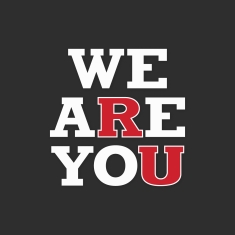
WE ARE YOU is an ongoing series of stories about the people who embody Rutgers University’s unwavering commitment to academic excellence, building community, and the common good.
Support Students
Please consider a gift to support students at the Honors Living Learning Community (HLLC) at Rutgers–Newark.
